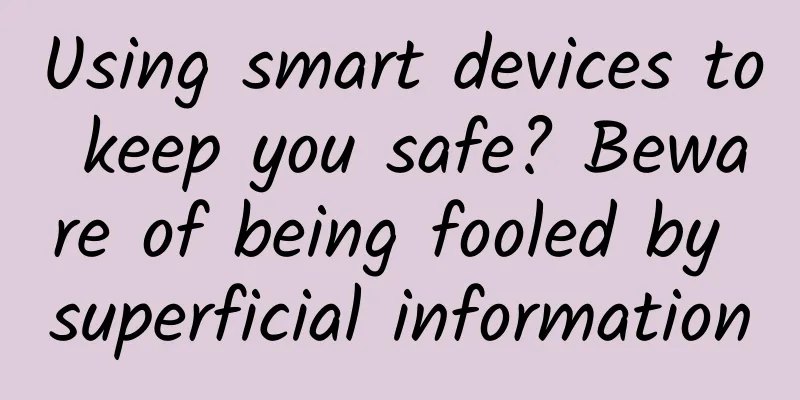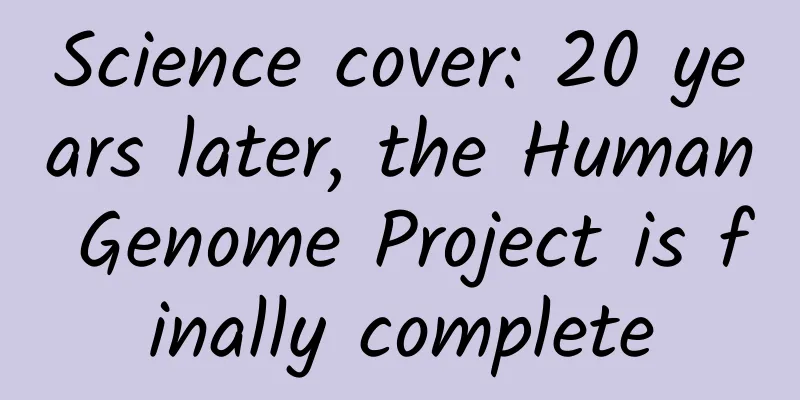Using smart devices to keep you safe? Beware of being fooled by superficial information

|
Usually, new products and technologies emerge with the direct purpose of solving a specific problem. The more basic and universal the problem to be solved, the greater the impact of the results. In the first two issues of the "Smart Eyes on Intelligence" column, we discussed with you the changes that smart products may bring to families and individuals. These two aspects seem to be closely related to everyone's life, but the smart hardware involved may not be well known to everyone. The reason is that the products are not just needed to solve pain points, and they cannot solve basic problems better than traditional solutions. The topic of this issue of "Smart Eyes on Intelligence" is "Safety". According to Maslow's hierarchy of needs theory, safety needs are basic needs related to survival, second only to physiological needs. In this article, you may see many smart hardware products that are familiar to readers. Looking at the security needs of modern people from the perspective of smart devices By definition, safety needs include the need for personal security, privacy in one's life, and freedom from pain, threats, or disease. Maslow believed that the entire organism is a mechanism for pursuing safety, and that human sensory organs, effector organs, intelligence, and other energies are mainly tools for seeking safety. Nowadays, these tools that humans have are no longer sufficient to meet the most basic safety needs, and various intelligent organ extensions are constantly being created. For example, in terms of monitoring air, water, food and other elements of survival, under current conditions, the human body's ability to perceive and eliminate potential threats has become very limited. Therefore , prevention and control equipment such as haze detectors, harmful gas monitoring alarms, air purifiers, smart radiation protection clothing, smart fertility protection underwear, smart water purifiers, and food identification chips have been born. Some people have even invented related production equipment to try to control food safety from the source. The home smart vegetable planter is one of the representative products. The expansion of smart safety protection equipment to organs is also reflected in its monitoring of itself and the environment, especially in the protection of vulnerable groups. Children's safety watches, pet anti-lost patches, elderly fall alarms, female anti-wolf weapons and other smart devices are mostly used in this way. Cameras and alarms for various occasions and special purposes constitute the main nodes of the smart security system, making security as free as possible from the constraints of time, distance, manpower and other factors. In addition, the emergence of equipment such as driving recorders also meets the self-protection needs of users in certain special circumstances. Commodities can, to a certain extent, reflect the different living conditions of humans in different eras. On the surface, we can use smart products to "intelligently" solve many problems, which is a blessing of technological progress. But in fact, the emergence of these problems may be more worthy of our consideration than solving them. Are smart devices the ultimate solution to security issues? What is certain is that the emergence of the above smart devices shows that people have begun to realize these security issues that are very characteristic of the times and have begun to solve them through technical means. The question is, with these products, can we really sit back and relax? In principle, smart security devices are not foolproof. Last month, there was a news report that a wealthy man's driver deceived the facial recognition system and sold his multi-million mansion; if a child is abducted, the safety watch may not be able to track the child because it is abandoned; the problem of smart cameras being attacked and leaking user privacy has occurred more than once. It can be seen that no matter whether it is technology or product logic, there will be loopholes wherever there is an entrance. This is the first point. Second, the devil is always stronger than the saint. This is an unchanging rule in the technology industry. Whenever a new security system appears, it almost means that the system is not far from being cracked. In addition, the more complex the product's functions are, the more complex the environmental conditions that restrict its operation are, such as electricity, WiFi signals, light, etc. Therefore, the device is more likely to lose its function due to the destruction of a certain condition. From the perspective of effect, the current smart safety equipment may satisfy the psychological needs of users more than the actual effect. On the one hand, fraud, getting lost, and falling are low-frequency events that no one wants to encounter. The psychology of users buying corresponding equipment is equivalent to buying a personal accident insurance, and the protection value is greater than the practical value; on the other hand, radiation, harmful gases, toxic substances, etc. are not within the perceptible range of humans. Without long-term and large-scale comparative observations, it is difficult to judge the actual effect. Consumers' purchasing psychology is usually "better to believe it than not to believe it." In modern society, which is considered "civilized", even if violent conflicts are excluded, the most basic security needs of human beings are still difficult to be guaranteed. From the perspective of short-term results, smart devices may solve the urgent problem, but they do not touch the root of the problem. "We hope that supermarkets will never sell expired and spoiled food, but this seems to be just wishful thinking." A report on NFC food identification chips may inadvertently point out the root of the security problem. As a winner of Toutiao's Qingyun Plan and Baijiahao's Bai+ Plan, the 2019 Baidu Digital Author of the Year, the Baijiahao's Most Popular Author in the Technology Field, the 2019 Sogou Technology and Culture Author, and the 2021 Baijiahao Quarterly Influential Creator, he has won many awards, including the 2013 Sohu Best Industry Media Person, the 2015 China New Media Entrepreneurship Competition Beijing Third Place, the 2015 Guangmang Experience Award, the 2015 China New Media Entrepreneurship Competition Finals Third Place, and the 2018 Baidu Dynamic Annual Powerful Celebrity. |
Recommend
The first M&A case in 2016: Mogujie and Meilishuo join hands
On the first day of the New Year, news about the ...
Tips for being a programmer: Your efforts and diligence must be visible to others
I often think back to my past self. I was just a ...
How to run a successful social media marketing campaign?
Product sales are not increasing? Sale! User purc...
A short video money-making project that is easy for beginners to use – Workplace secrets
There are many examples of making money in the wo...
Use Jenkins to build iOS/Android continuous integration packaging platform
Background Description According to the project r...
Spam SMS filtering app based on iOS 11 machine learning: Pandas eat SMS
As a tech geek living in the mobile Internet era,...
Comrades, please wait a little longer. The salary increase will be the highest in March and April.
[[161294]] This article mainly talks about indust...
If you have these 4 symptoms after getting up in the morning, your blood lipids may be high! It is especially dangerous after the age of 40!
According to the data of "China Blood Lipid ...
Activity rate = active users/total users? So what is an active user?
What is an active user? Some analysis tools defin...
Benefits for Android users: Ten major improvements in Google Android N
The online version of Forbes recently wrote an ar...
How to use Xiaohongshu for promotion and traffic generation?
If you want to do a good job of promoting Xiaohon...
Galaxy-I is 40 years old! Inheritance and transcendence, the glorious road of China's supercomputer!
On December 22, 1983, my country's self-devel...
Whether your account performance can achieve high conversion depends on these 3 points!
I know that what everyone cares about most is the...
What is the charm of new energy vehicles? Why are Internet giants competing to invest in them?
As the price of non-renewable fuels continues to ...









